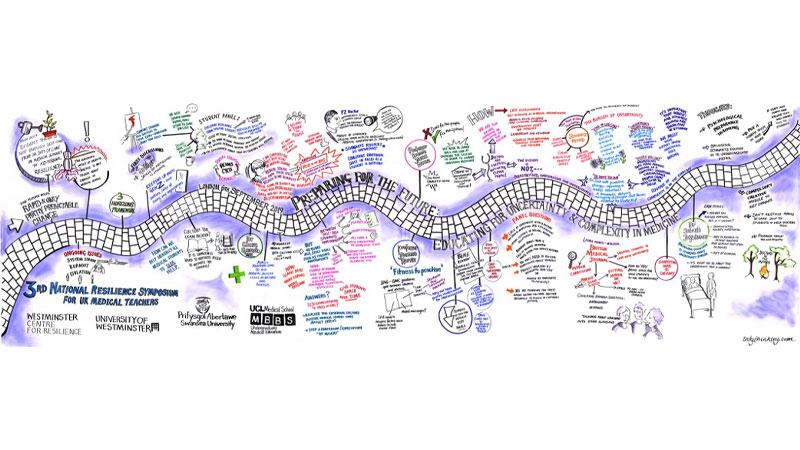Professor David Peters, Clinical Director of the Centre for Resilience at the University of Westminster, along with academics from University College London and Swansea University, published an article in The Clinical Teacher about educating future doctors in times of uncertainty and complexity.

The insights in the article are based on the Centre for Resilience’s symposium in 2019, the third of its kind, which was on educating for uncertainty, complexity, and loss. Due to the nonlinear and unpredictable nature of health care, recognising and managing uncertainty and complexity is a crucial aspect of professional practice.
Medical students and trainees are not only some of the top academic achievers, but also have been selected for their conscientiousness, compassion, and communication skills. These students often typically exhibit perfectionist traits, which can be a challenge when faced with managing clinical uncertainty.
The article states that the health care system will need to adapt to societal changes, including accommodating growing numbers of less than full-time workers and the wishes of the future workforce.
The Clinical Teacher, in which the insights were published, is an international, peer-reviewed, and Medline-listed journal aimed at clinicians who teach and people who are involved in education in a health care setting. The journal is available for free on the Wiley Online Library.
The Centre for Resilience provides high-quality, evidence-based human resilience training, consultancy, and evaluation services to the corporate and public sector. Their products and services improve individual and organisational wellbeing, productivity, performance, and creativity.
Professor Peters himself has co-authored and edited five books about complementary therapies and has led on a series of research projects implementing or evaluating complementary medicine in mainstream settings. He is trained as a family doctor and later trained in osteopathic medicine and as a musculoskeletal physician.
Professor Peters said: “Doctors of the future will face unpredictable new demands in an ever more complex profession. The annual symposia organised by the University’s Centre for Resilience have explored in various ways how their medical teachers might help students thrive in an increasingly unstable world. The coronavirus pandemic is a stark example of things to come. During this ongoing emergency, NHS staff put their wellbeing at risk, and for a while a sort of Dunkirk Spirit may be boosting morale. But, as the deputy CMO for England recently warned, once the pandemic dies down many NHS staff will face mental health problems. And there is already a growing mental health crisis among the NHS workforce.”
He added: “Medical students are among the UK’s top academic performers; conscientious, compassionate and with commitment needed to survive the rigours of medical training. Yet research suggests their mental health deteriorates during medical school years and continues to decline as they enter the workforce. The Centre’s ongoing resilience teaching and research has been reaching out across the UK to support medical teachers and leaders prepare the next generation for medicine’s known and unknown unknowns.”


